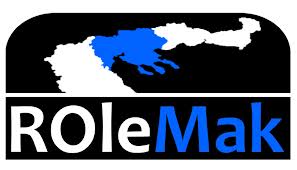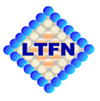An enormous attention to Organic Photovoltaics (OPVs) has been realized during the last years due to the constantly growing demand of sustainable sources of energy. The OPVs have many advantages, such as low cost, ease in process and conformability to curved surfaces, that make them attractive for numerous mass-market application areas.
The enormous effort in the science and technology of OPVs led to many achievements in terms of device efficiencies. Several research groups & companies have announced very high device efficiencies. However, in order for OPVs to be implemented for mass production, there are still open issues to be overcome, as the lower efficiency values and shorter lifetimes in comparison to other PV technologies (e.g. inorganic PVs).
The Workshop on OPVs will reveal, discuss and contribute to solving of all aspects covering the synthesis, thin film fabrication of new organic semiconductor (conjugated polymers, evaporated small molecules or solution processed small molecules) and electrode materials, efficient charge transfer mechanisms, optimization & control of blend morphology, device architectures, lifetime and stability, and mass manufacturing.
The OPV Workshop is combined to the Nano4PV Workshop that will take place during NN15 in the same location and together they will cover all aspects of materials, devices, architectures, and manufacturing processes of PVs.
The OPV Workshop topics include:
- Organic Semiconductor materials for OPVs (small molecules & polymers)
- Organic/inorganic and hybrid materials and systems
- Synthesis of new materials
- Morphology & Interfaces characterization and control
- Influence of nano-morphology on device physics
- Device lifetime, ageing and reliability
- Charge transport and microstructure relationships
- High efficiency approaches in vacuum and printing technologies
- Thin film fabrication by lab- and large area processes (Printing, Vacuum, Patterning)
- Thin film monitoring and optimization of processes
- Process, Manufacturing & Applications
- Device Architectures
- Organic tandem cells
- Theory, Design, Modelling, Simulations & Computational MethodsOrganic/inorganic and hybrid materials and systems
Workshop International Organizing Committee:
- Dr. Konstantinos Fostiropoulos, Helmholtz-Zentrum Berlin, Germany
- Prof. Vladimir Dyakonov, University of Würzburg, Germany
- Prof. Ravi Silva, University of Surrey, UK
- Dr. Bertrand Fillon, CEA/LITEN, France
- Dr. Jörg Ackermann, Centre Interdisciplinaire de Nanoscience de Marseille (CINaM), France
Workshop supported by the EU funded R&D Projects:
| SMARTONICS: Development of smart machines, tools and processes for the precision synthesis of nanomaterials with tailored properties for Organic Electronics", Grand Agreement 310229 (http://www.smartonics.eu) |
 |
ROleMak: Reinforce Organic Electronics Research Potential in Kentriki Makedonia, FP7-REGPOT-2011-1 |












